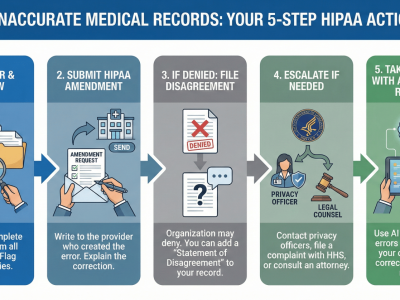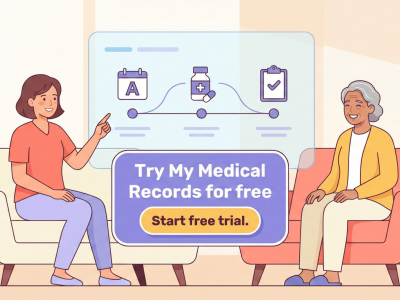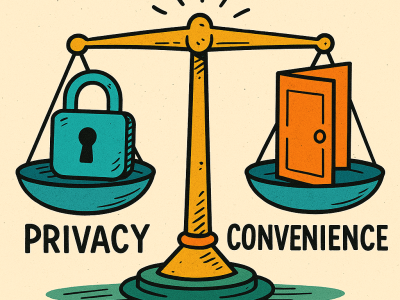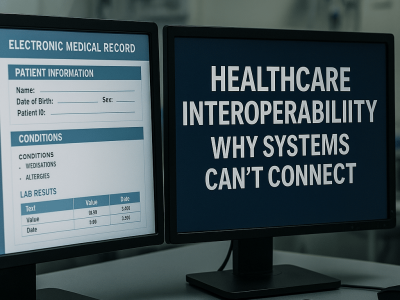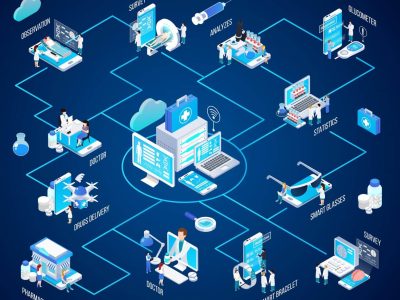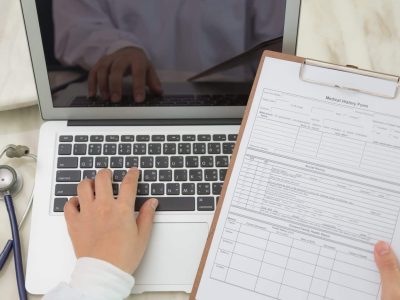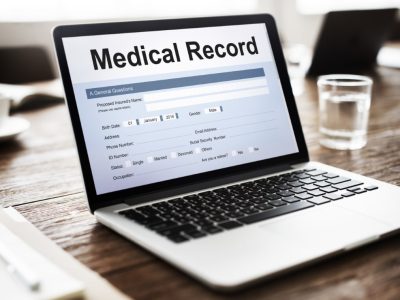Will artificial intelligence replace doctors in interpreting medical records? While AI has made enormous strides in processing data faster and more accurately, the human element in healthcare—empathy, context, and judgment—still plays a crucial role. In this blog, we’ll explore how AI supports, but may not replace, medical professionals.
KEY TAKEAWAYS
- AI enhances medical accuracy, but doesn’t fully replace human clinical judgment.
- Doctors still play a vital role in decision-making, patient communication, and contextual diagnosis.
- AI in healthcare reduces errors, improves efficiency, and helps manage large datasets.
- Medical record management solutions powered by AI ensure secure, fast access to critical health information.
- My Medical Records offers a secure platform that complements the strengths of both doctors and AI.
Table of Contents
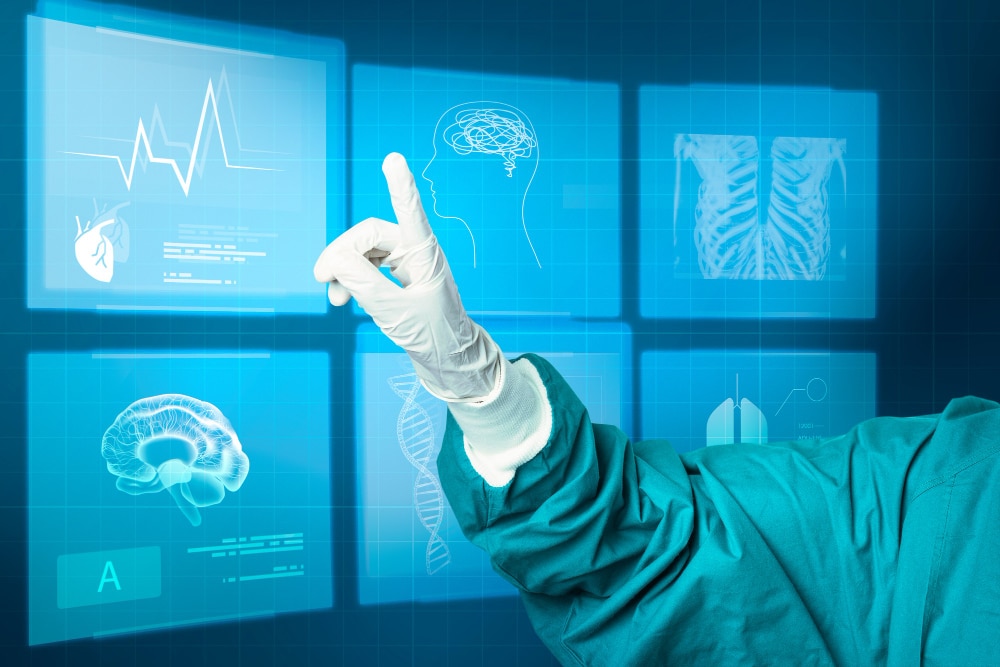
In the rapidly evolving world of digital health, one question keeps popping up: Will artificial intelligence eventually take over doctors’ responsibilities, particularly in reading and interpreting medical records? The idea seems both promising and alarming. With AI tools now capable of scanning millions of documents, identifying anomalies, and generating diagnostic predictions, the role of physicians seems to be changing.
But should we see this as a replacement or reinforcement? As medical data becomes more complex, there’s a growing need for systems that can manage it efficiently. Enter My Medical Records, an AI-powered solution built to help both patients and professionals handle sensitive medical documents with ease and accuracy.
The Role of AI in Medical Record Interpretation
Artificial intelligence, especially machine learning and natural language processing (NLP), is revolutionizing how medical records are interpreted. Unlike traditional software, AI can learn from vast datasets, recognize patterns, and even suggest treatment options based on clinical guidelines.
AI algorithms can extract crucial information from electronic health records (EHRs), such as diagnoses, lab results, and prescription history, in seconds. This capacity significantly improves efficiency for doctors, reducing administrative burden and freeing them up for direct patient care. For example, platforms like My Medical Records use AI not only to store and organize health records securely but also to make them instantly retrievable and understandable.
Despite these advancements, medical decisions aren’t purely data-driven. A doctor’s role extends beyond reading numbers or charts; it involves interpreting nuances, recognizing rare symptoms, and understanding a patient’s emotional and psychological condition—areas where AI still falls short.
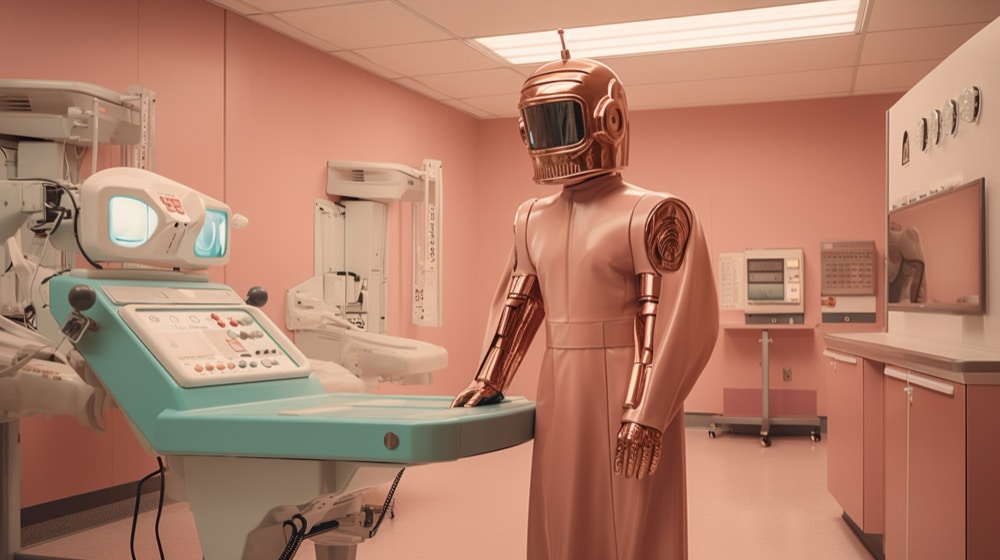
Can AI Truly Replace Human Clinical Judgment?
While AI can process and analyze massive volumes of data quickly, it lacks the context that human doctors bring to the table. Clinical decisions require an understanding of the patient’s history, lifestyle, and even non-verbal cues—subtleties that AI isn’t yet equipped to interpret effectively.
In scenarios such as correcting an inaccurate diagnosis in medical records, AI can flag inconsistencies or outliers, but a physician is still needed to validate and address those findings. An algorithm might detect an anomaly in a blood test result, but it cannot consider whether the patient had just completed a marathon or was fasting—factors that affect interpretation.
In short, AI excels at identifying patterns and surfacing insights, but it cannot replace the human touch needed to fully interpret them. Physicians provide a deeper understanding that stems from years of experience, clinical intuition, and ethical responsibility.
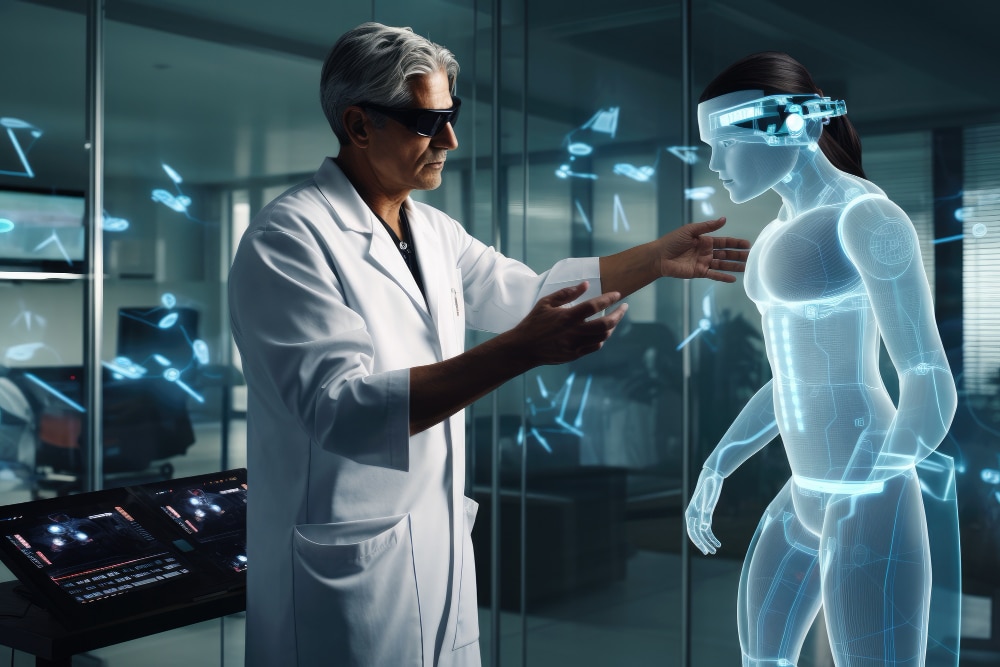
How AI Can Support Doctors, Not Replace Them
Rather than viewing AI as a threat to medical professionals, it should be seen as a tool that empowers them. AI reduces time spent on administrative tasks, minimizes errors in documentation, and provides quick insights that inform better care decisions.
For example, in locating and organizing your medical record number, an AI-powered platform like My Medical Records can streamline this process for patients and professionals alike. No more sifting through files or calling clinics—everything is accessible and centralized in one secure digital vault.
By integrating AI into medical workflows, doctors can make more informed decisions, improve patient outcomes, and spend more time focusing on the human side of care. AI becomes a smart assistant, not a replacement.
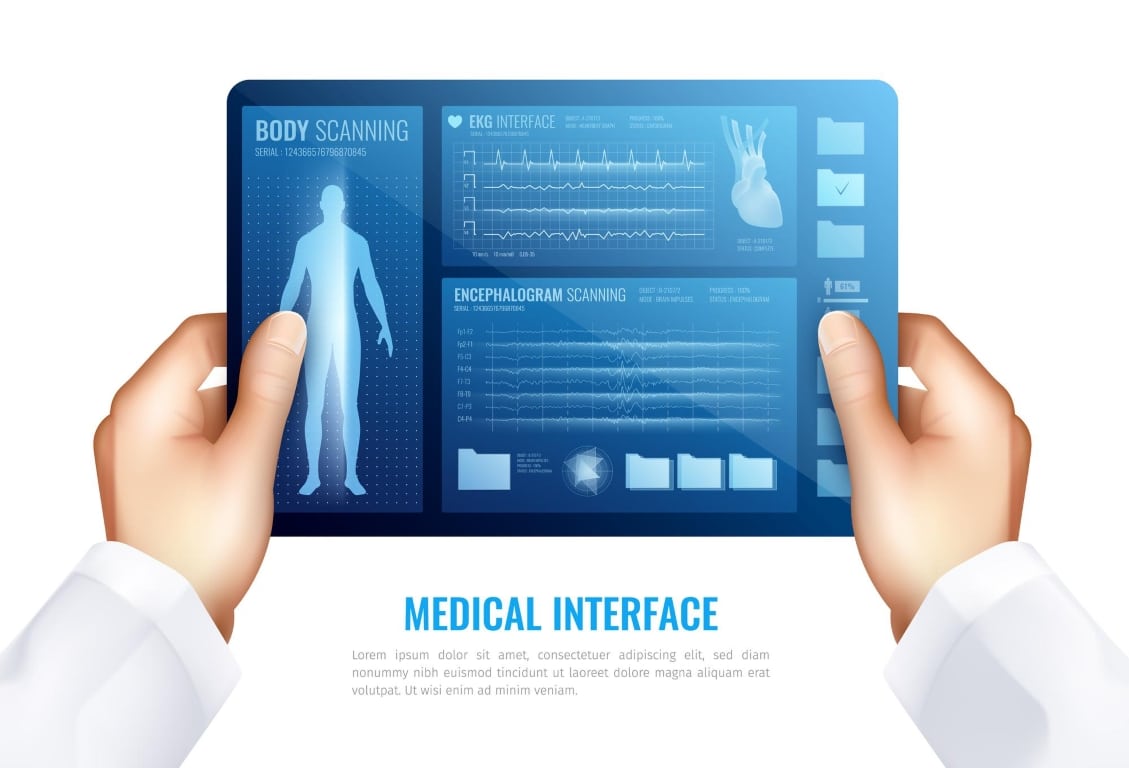
Benefits of AI-Driven Medical Records Platforms
One of the most significant applications of AI in healthcare is in medical record storage. Platforms like My Medical Records allow patients to upload, manage, and share their health information easily while maintaining full control over who can access it.
AI enhances this experience by auto-categorizing documents, flagging duplicate entries, and even reminding users when updates may be necessary. For healthcare providers, it offers fast access to comprehensive patient history, improving diagnostic accuracy and continuity of care.
Furthermore, AI can monitor for potential errors or inconsistencies in a patient’s history—creating opportunities for early intervention or second opinions when needed. In this way, it becomes a safety net that complements physician oversight.
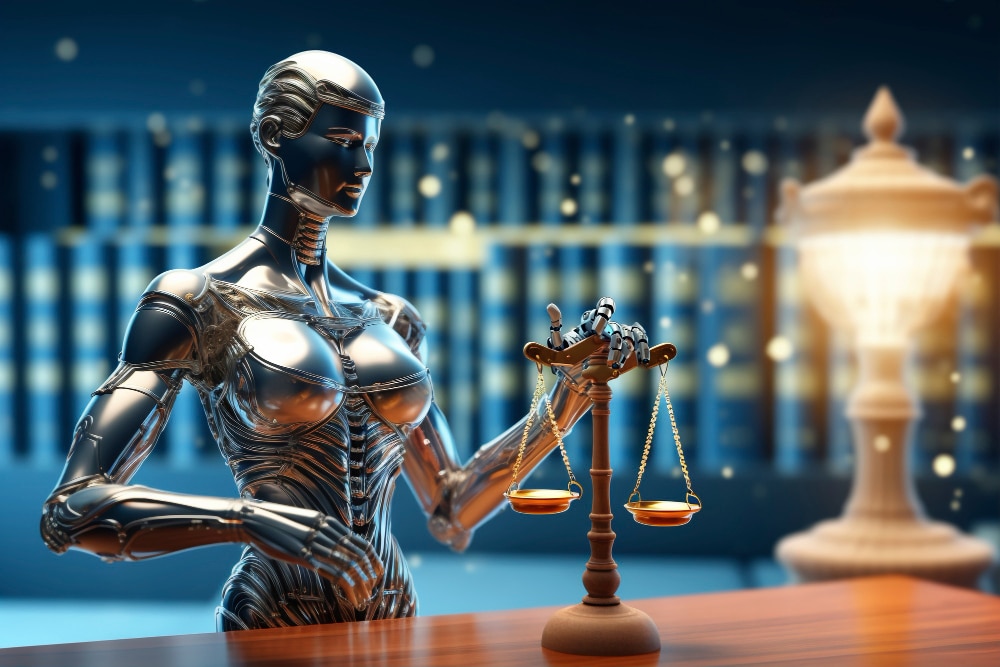
Legal and Ethical Considerations of AI in Medicine
With AI taking on more tasks related to sensitive data, there are valid concerns about privacy, consent, and accountability. Who is responsible if an AI makes an error? How is patient consent managed in automated decision-making?
The answer lies in transparent systems and shared responsibility. While AI can provide suggestions, the ultimate responsibility still lies with the medical professional. That’s why platforms like My Medical Records are designed with strict data privacy and access controls.
Ethical use of AI in healthcare means involving patients in the process, ensuring transparency in how data is used, and setting clear boundaries on AI’s decision-making capabilities. These safeguards ensure that the technology supports care without compromising trust.
The Future of AI and Human Collaboration in Healthcare
Looking ahead, the future is not about AI versus doctors—it’s about AI with doctors. The collaboration of human expertise and machine intelligence has the potential to transform healthcare, especially when it comes to accessing, analyzing, and acting upon medical records.
For example, patients can now easily share their medical records with multiple providers through platforms like this, improving coordination between specialists and reducing repeated tests or missed information.
As AI becomes more sophisticated, we can expect even greater advancements—faster diagnostics, personalized treatments, and proactive health monitoring. However, these breakthroughs will still rely on the guidance and wisdom of trained medical professionals.
Helpful Tips for Choosing an AI-Powered Medical Records Platform
Look for platforms that balance security, accessibility, and transparency. Make sure there is clear human oversight, especially when dealing with sensitive diagnoses or legal matters.
Summary
Artificial intelligence will not replace doctors in reading medical records—but it will undoubtedly change the way they work. AI is a tool, not a substitute. It offers speed, efficiency, and data precision, but the core of healthcare remains human connection, empathy, and understanding.
At My Medical Records, we combine the best of both worlds: the power of AI and the assurance of secure, human-informed care. Whether you’re managing personal health data or overseeing multiple patients, our platform ensures that your records are always safe, organized, and accessible. Contact us today to learn more.
Related Topics:
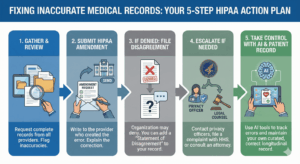
What to Do If There Is Inaccurate Data in Your Medical Record
The chart that does not match you You probably discovered the inaccurate medical records error because something routine went wrong: a prior authorization denied, a
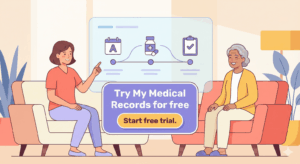
From Chaos to Clarity: A Family Caregiver’s Guide to Unified Health Records
Here’s what nobody tells you about caregiving: The hardest part isn’t watching your loved one struggle with their diagnosis. It’s trying to keep track of
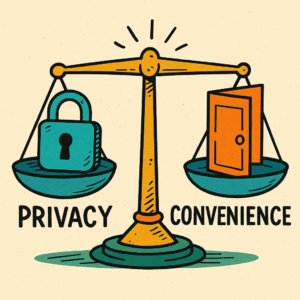
Privacy vs Access: Finding the Right Balance in Your Digital Health Record
Healthcare interoperability is the ability of different healthcare systems, devices, and applications to seamlessly share, understand, and use patient data across organizations and geographic boundaries.
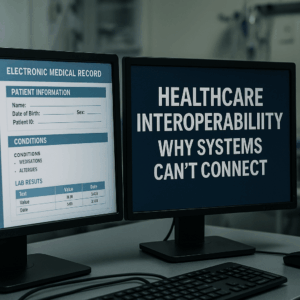
Healthcare Interoperability: Why Systems Can’t Connect
Healthcare interoperability is the ability of different healthcare systems, devices, and applications to seamlessly share, understand, and use patient data across organizations and geographic boundaries.

How to Merge Medical Records from Multiple Doctors and Avoid Errors & Duplicates
Learn how to merge medical records from multiple doctors, avoid duplicate entries, and reduce errors. Use AI tools like My Medical Records to simplify the process.

What Happens to Your Medical Records After a Doctor Retires or a Clinic Closes?
Learn how to merge medical records from multiple doctors, avoid duplicate entries, and reduce errors. Use AI tools like My Medical Records to simplify the process.

